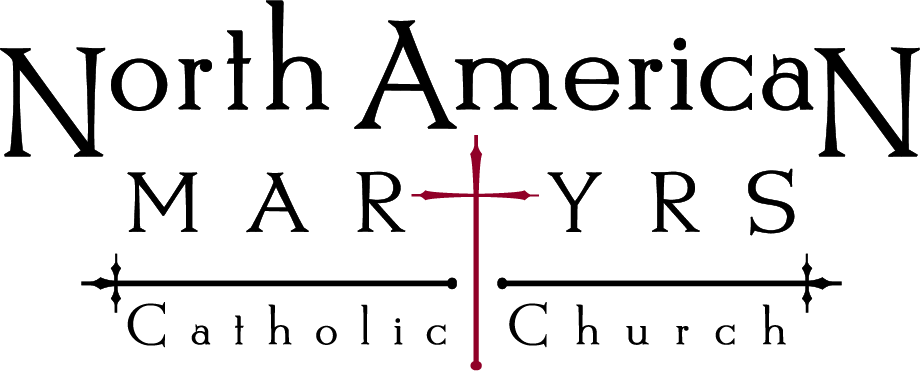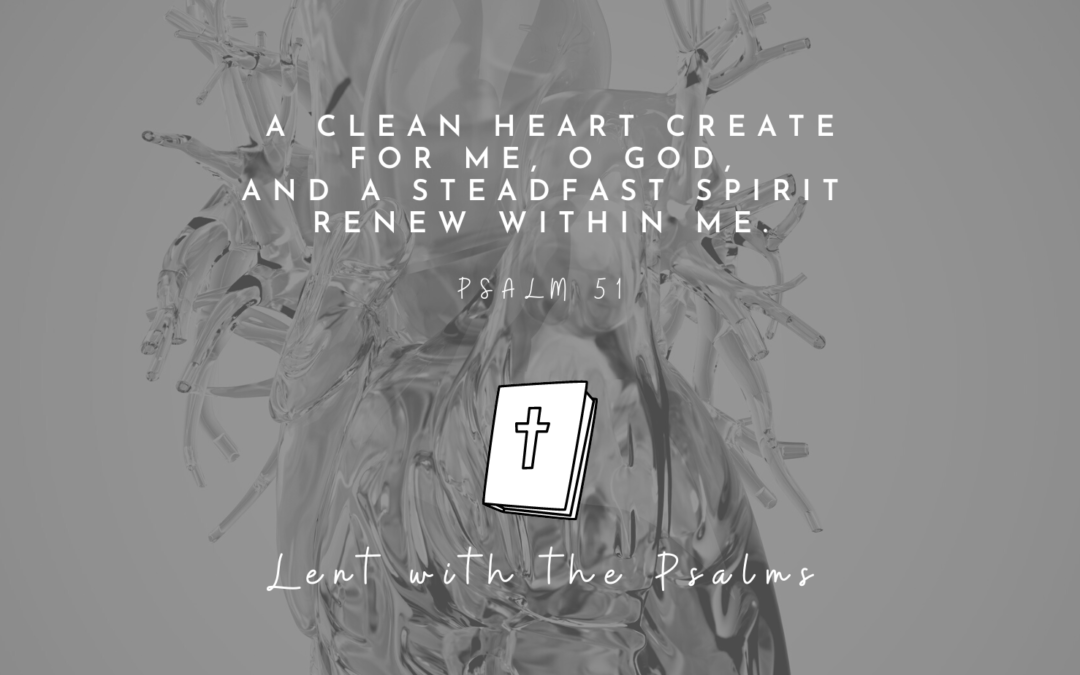Often overlooked in homilies and bible studies, the Psalms are the life-blood of the Church’s prayer life. They are also the most cited works in the New Testament. Throughout the ages, the Church has turned to the Psalms in order to converse with God, to find spiritual nourishment and moral teaching, and to discover even more of the richness of Christ. But the Book of Psalms is also quite large. And so, during this Lent, we won’t try to cover all 150 psalms but only those which we’ll pray together at Sunday Mass. The hope is that you’ll find at least one thing in these brief reflections that you can take to prayer. And that this prayer will make your Lent all the more fruitful.
Quick note before we begin. In Mass, the Church gives us only select verses from the NAB translation. In these reflections, I’ll be walking us through the whole psalm and I’ll be using both the NAB and the ESV translations. So if you can, I would recommend having your bible opened up as we go.
For this first Sunday of Lent (and also Ash Wednesday), we’re given Psalm 51. The first thing to notice about this psalm is the superscript. Many of the psalms have these. They name either an author or someone associated with the psalm, and some superscripts connect the psalm with a specific episode in the life of David. Our’s here is: “To the choirmaster. A Psalm of David, when Nathan the prophet went to him, after he had gone in to Bathsheba.” Now there’s some healthy debate about these superscripts, but we can at least say this: a layer of meaning or depth to this psalm comes to light only when situated within the narrative context of David and Bathsheba. And this context is a doozy.
David was the second king of Israel and is hailed in scripture as a “man after God’s heart” (cf. 1 Sam 13:14; Acts 13:22). But David messed up in a pretty big way. One day while he was sitting around, he saw Bathsheba bathing on her roof. He sent for her, slept with her, and then orchestrated the death of her husband. After all of this, the prophet Nathan comes to him and tells him a story about a man who stole another man’s only lamb. David, in a burst of rage, demands that man be put to death only to hear Nathan reply, “You are that man!” (2 Sam 12:7). Oh, the irony!
This is the backdrop to this psalm. David has committed not only adultery but murder, as well. And given the fact that Nathan doesn’t call for Bathsheba to be punished or even speak of the need for her to be forgiven, it’s implied that she didn’t go to David willingly. This makes things all the worse for David. If anyone has fallen from grace, it’s him. And yet herein lies the beauty of this psalm. By placing this prayer on the lips of David after all that he did, the Holy Spirit gives us the words to pray and the courage to pray no matter what awful things we’ve done.
The psalm then begins, “Have mercy on me, O God, according to your steadfast love.” The translation at Mass says “Have mercy on me, O God, in your goodness.” The key here is that the psalmist is placing his hopes not on his own merits but on the hesed of God. A constant theme in the OT, God’s hesed denotes his faithful love for his people. Here the psalmist is crying out and appealing to this hesed: Have mercy on me because of your great love, and your abundant mercy! In the same way, we begin this season of repentance by directing God not to all of our good deeds or our challenging fasts but to his own hesed. His forgiveness is a pure gift, not anything we can possibly earn.
In the beginning here, we see that the psalm starts off with a request: “Have mercy on me.” There are 21 requests throughout the psalm (that’s more than there are verses!): “have mercy on me,” “blot out,” “wash me,” “cleanse me,” etc. As a multiple of seven (often signifying completeness or perfection), the very number of requests denotes a complete reordering of life. The psalmist wants nothing less than to be completely changed by God’s merciful hesed. By placing this psalm at the beginning of Lent, the church invites us to make this same prayer. But if it remains merely something we say, it’s rather empty (much like the burnt offerings God’s not pleased with in v. 16). The psalm must be accompanied by a resolve – even if only a weak and half-hearted one – to cooperate with God’s good grace and allow him to transform our lives this Lent. Eat the candy; put away the sin.
Moving on from the opening, we can divide up the psalm into three main sections. The first section is vv. 1-9. It begins with a call on God to “blot out” his transgressions, “wash” him from his iniquity, and “cleanse” him of his sin. Likewise, it ends in vv. 8-9 with these three requests in reverse: to be made clean, washed, and to have his sins blotted out. These bookends announce the main theme of this section: confession of sins. God isn’t mentioned much in these verses; this begins to change in the next section where confession of sin is replaced with God’s presence.
The next section (vv. 10-17) begins with this request: “Create in me a clean heart, O God.” We tend to associate the heart with feeling and emotion. In scripture this is more the role of the “bowels” or “kidneys.” The heart was figuratively considered the seat of decision making, the home of the mind and the will. In hopes of having his mind and will healed and reoriented, the psalmist makes a triple invocation of the Spirit: “renew a right spirit within me,” “take not your Holy Spirit from me,” “uphold me with a willing spirit.” During Mass, the priest calls down the Holy Spirit on the bread and wine that they might be radically changed into the Body and Blood of Christ. Through this prayer, we are calling on the Holy Spirit that we might, in a similar way, be radically changed, made a new creation.
In her wisdom, the Church pairs up with this psalm a reading from Genesis. It begins, “The LORD God formed man out of the clay of the ground and blew into his nostrils the breath of life, and so man became a living being” (2:7). Man was created by the breath (or spirit) of God coming down into him. Man then sinned. Sin, throughout the Bible, is depicted as a de-creation. It expels man from the Garden, it brings about death, it turns man back into dust, it disunites people from each other and from creation. The antidote is to be re-created with God’s spirit, the very thing for which our psalmist prays: Make me a new creation!
Our second reading from Romans takes up this same theme and points us to the cross: it is from the cross that Christ makes us a new creation. The gift of Christ, Paul proclaims, is of such surpassing greatness when compared with our sin. Our Gospel then exemplifies the life of the new man. Jesus’ rejection of those temptations in the desert demonstrate his faithfulness and devotedness to God even in times of trials. As a new creation, we come to embody God’s very own faithful love, his hesed, which we see displayed in the life of Jesus.
Returning to our psalm, the psalmist begins, in v. 14, to turn from prayers of repentance to prayers of praise and God begins to be mentioned much more frequently. His literary presence in the poem signifies his real presence, the presence of his hesed in the life of the psalmist as God washes away his sins.
The psalm closes in vv. 18-19 with what appears as an odd appeal to animal sacrifice in the temple. But there is something beautiful going on here. Earlier, in v. 8, the psalmist says, “Let me hear joy and gladness.” The psalmist looks forward not only to forgiveness but also to what comes with it: rejoining the worshiping community. The psalmist now prays for Zion and that God might “build up the walls of Jerusalem.” Rebuilding Jerusalem parallels the psalmist’s forgiveness.
There is a corporate dimension to every sin. No matter how private our sins may appear, they negatively affect not only ourselves but others as well. Those baptized into Christ hurt the whole church by their sins. And so when we turn for forgiveness, this positively affects not only us but, in some mysterious way, everyone else, too. Being made right with God and neighbor, we can join the community and praise God’s merciful hesed.
Not only this, but we also recognize as we’re praying for forgiveness that we are not the only ones in need of God’s mercy and healing. Everywhere we see the “walls of Jerusalem” torn down by personal and institutionalized sin. As St. John Paul II pointed out, we live in “a culture of death.” And so as we close our prayer, we pray that we may again offer “right sacrifices,” the best of which is a humble mind and will turned in obedience to God.
And so we join the Church this Lent as we journey together by God’s grace the road of repentance, appealing not to our own merits but to his hesed: “Be merciful, O Lord, for we have sinned.”

